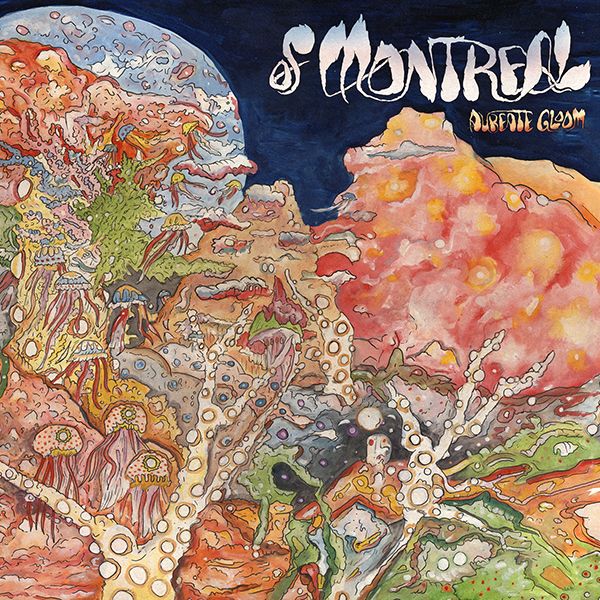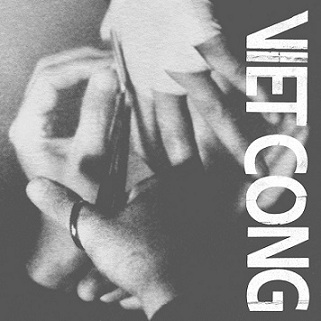
Of Montreal
Aureate Gloom
Polyvinyl; March 2015
Of Montreal have a thing for titles. Usually wordy, erudite, and often plain mystifying. Aureate Gloom is hardly different. However it predicts the mature self-reflection that the band achieves on their 13th album, released in early March. Smooth, golden gloominess fairly describes the band’s approach to songwriting in general. A darkly sweet formula, with heaviness hiding behind dancey symphonies. On the offset, Of Montreal are not breaking new ground on this album, sticking instead with the golden formula that served them best on the beloved 2007 Hissing Fauna, Are You the Destroyer, a meld of funk, glam, anger and sunshine. “Bassem Sabry” jaunts along with the hopping bass and falsetto, fitting right in with their earlier work. Maybe it is simply the enthusiasm the band seems to bring to it, but Aureate Gloom somehow escapes sounding like overflow material of past albums. It feels rather like songwriter Kevin Barnes has yet to exhaust his glitzy muse. The overall listenability is perhaps where the album’s merits will come under debate. Aureate Gloom rocks a little harder in some parts, like the punky , almost deceptively simplistic “Apollyon of Blue Room” and dissonant thrasher “Cthonian Dirge For Uruk the Other.” However, the album also satisfyingly takes its’ time to slow down with songs like “Estocadas,” a comfortably downbeat track that takes up the space that some of the dancier songs seem reluctant to do. At times the album seems to make even too much sense; its ultimate solidity maybe holding it back from the glimmer of its sparks of genius. But those moments are there, and Barnes’ ability to work his trademark off-kilter sensibilities into logical structure is a testament to the band’s irrepressible strangeness.

Viet Cong
Viet Cong
Jagjaguwar, 2015
Canadian group Viet Cong are restrained by the label of “Post-Punk,” a term swallowed in the past fifteen years by bands like The Strokes and The Killers. Their eponymous debut album goes beyond, into the depths of postmortem-punk, like a resurrection of punk in some dystopian future, led by the icy vocals of some far-off general. The album is brief and brutal, but in less than 35 minutes it develops a compelling narrative. The album starts out with the thunderous “Newspaper Spoons,” a manifesto for the rest of the album; the first jump into cold, noisy terror. The song sounds as if it is rattling around inside a giant chemical drum. Vocalist Matt Flagel’s voice drones in flat harmony like some far-off army coming ever closer, eventually de-escalating into an atmospheric synth garden. If “Newspaper Spoons” is the thundering general, “Pointless Experience” is the hopeful revolutionary. Flagel’s voice reaching a warmer shade of pathos, still distant, but moving beyond the cold formality of krautrock imitation. “March of Progress” brings back the militaristic drum beat, but lapses into woven layers of sprawling pyschedelia, influenced perhaps by the Animal Collective breed of sunny electro-pop. This is where the band reaches a threshold and shows their range; where Flagel asks a pertinent question: “What is the difference between love and hate?”
As the band glides between satisfying hookiness and off-kilter dissonance, those words seem to anthemize the query that surrounds the music itself — a nowhere land somewhere between pop utopia and industrial purgatory.







